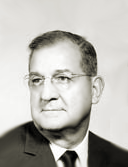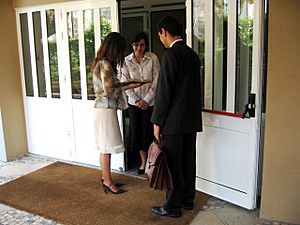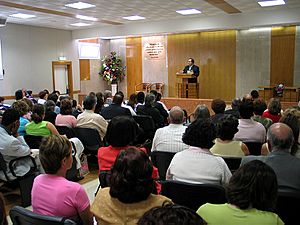Jehovah's Witnesses facts for kids
Quick facts for kids Jehovah's Witnesses |
|
|---|---|
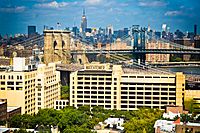
Watchtower Buildings in Brooklyn, New York
|
|
| Classification | Millenarian |
| Orientation | Restorationist |
| Structure | Hierarchical |
| Region | Worldwide |
| Founder | Charles Taze Russell (founded Bible Student movement) |
| Origin | 1876: Bible Students founded 1931: Named Jehovah's witnesses Pennsylvania and New York, USA |
| Separations | See Jehovah's Witnesses splinter groups |
| Congregations | 118,016 |
| Members | 8.2 million |
| Statistics from 2016 Yearbook of Jehovah's Witnesses | |
Jehovah's Witnesses are a worldwide religious group. They have over eight million members. They believe God will soon end all the bad things in the world. This includes crime, violence, sickness, and death. They think God's Kingdom, a special government, will then rule the Earth. This will make the Earth a peaceful paradise for everyone who follows the Bible.
Their beliefs come from the Bible. A preacher named Charles Taze Russell started their Bible study group in Pennsylvania in 1876. He also began publishing a magazine called The Watchtower.
Some of their beliefs are different from other Christian groups. For example, they believe only 144,000 people go to heaven. Most people who follow God will live forever on a beautiful, peaceful Earth. They also do not believe God is a Trinity (three in one). They teach that when people die, they sleep in their graves. They believe Jesus Christ will resurrect them after God's Kingdom rules the Earth.
Witnesses are well known for sharing their beliefs. They preach from door-to-door and in public places. They offer their magazines, The Watchtower and Awake!. They are also known for not joining armies and for refusing blood transfusions.
Contents
How Jehovah's Witnesses Started
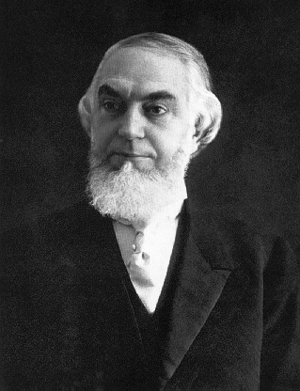
In 1870, a young man named Charles Taze Russell heard an Adventist preacher speak. The preacher said the Bible had clues about God setting up a kingdom. This kingdom, or government, would rule the Earth. It would be based in heaven and change life for everyone. Russell studied these ideas and searched the Bible for answers.
Russell used Bible verses and historical dates to form his beliefs. He decided that God would soon call a group of "saints" to heaven. These "saints" would become kings in God's Kingdom. Other faithful Christians from the past would also join them. In total, there would be 144,000 kings in heaven.
Churches at that time taught that people were waiting for Jesus to return. But Russell believed Bible clues showed Jesus had already returned in 1874. He called this his parousia, or "presence." Russell also believed God's plan included starting Armageddon. He thought Armageddon would be a breakdown of law and order on Earth. Governments and people would fight each other. After this, he believed God would end sickness and death. Humble and obedient Christians would then live forever in perfect health.
Russell felt it was very important for all Christians to learn these "truths." He believed these "truths" had been hidden in the Bible for thousands of years. So, he started a publishing group called the Watch Tower Bible and Tract Society of Pennsylvania. He wrote many books and set up Bible study classes. He also began publishing a magazine, Zion's Watch Tower and Herald of Christ's Presence. This magazine announced that Christ was already present. He wrote that God would bring all these events by 1914.
A New Leader Takes Over
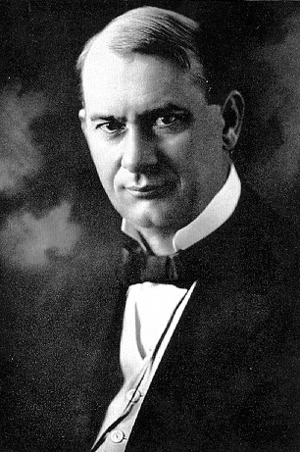
Charles Taze Russell died in 1916. By then, he had written many articles, books, and sermons. Almost 20 million copies of his books had been printed. Joseph Franklin Rutherford, one of Russell's followers, became the new president of the Watch Tower Society.
Rutherford also wrote and published many books. He made some changes to Russell's teachings. He also required all the study groups, or congregations, worldwide to follow the same teachings and rules. These rules came from the Watch Tower Society in New York.
He told all members to preach door-to-door about God's Kingdom. They were also to sell Watch Tower Society books and magazines. This way, more people would hear their message. In 1931, Rutherford introduced the name "Jehovah's Witnesses" for the religion. This name highlighted what they believed was God's holy name. When Rutherford died in 1942, the religion had 115,000 members worldwide.
Growing and Changing (1942–Present)
Nathan Knorr became the third president of the Watch Tower Bible and Tract Society in 1942. Knorr started a new translation of the Bible. It was called the New World Translation of the Holy Scriptures. The full version came out in 1961. He organized large international meetings and started new training programs. He also expanded missionary work and opened more offices around the world.
During Knorr's time, there were more clear rules for Witnesses' lives. There were also more judicial procedures to make sure members followed a strict moral code. Some of these new teachings caused suffering for many Witnesses. Thousands were sent to prison or hurt during World War II because they refused to fight. Later, in the United States, many children were expelled from schools. This was because they refused to salute the flag, as they believed God would not approve.
Some countries still have laws against Jehovah's Witnesses. But the religion continued to grow fast. They became better at teaching people door-to-door. By 1977, they had over two million members worldwide. They also had many properties at their New York headquarters.
Expectations for Armageddon
From 1966, the religion encouraged members to believe that Armageddon would come in 1975. They thought God's Kingdom would be set up soon after. Some Witnesses sold their businesses and homes. They gave up jobs and delayed medical operations. Some decided not to start families because they expected Armageddon. The religion's leaders later apologized for these statements. They said they were just very eager for the Kingdom to come. Many members left because they were disappointed. But membership later grew even higher.
Sharing Their Beliefs
Jehovah's Witnesses are most known for their door-to-door ministry. They believe Jesus Christ told them at Matthew 28:19 to "go make disciples of all the nations." They warn people that God's judgment day, or Armageddon, will happen soon.
All Witnesses are encouraged to spend time regularly preaching in public. This usually means offering The Watchtower or other Watch Tower Society publications. Since the Internet, Jehovah's Witnesses also preach online. Some Bible studies happen over communication networks like Skype. They teach people Witness doctrine about Jehovah and his plans for the Earth.
Meetings and Worship
The buildings where Jehovah's Witnesses meet are called Kingdom Halls. Unlike many other churches, these halls do not have altars, statues, symbols like the Cross, or candles. Each congregation has two meetings a week. Members can also attend by phone, listening in through a call-in number. They also attend big conventions and assemblies several times a year. These are often held at hired sports arenas, where thousands of Witnesses gather.
Most meetings include talks or study sessions. These are based on articles in Watchtower Society books and magazines. Topics are about the Bible or Christian life. At the congregation, people in the audience, including children, can make comments. They can also answer questions asked by the speaker. The religion has elders and ministerial servants. These are like bishops and deacons in some other Christian churches. But they have no paid clergy. Most elders support themselves with other jobs. They also do not think they are better than other members. They do not dress in a special way.
Rules and Lifestyle
Members of the religion are expected to live by high moral standards. They are told they should always be honest.
Jehovah's Witnesses are not allowed to:
- Smoke tobacco or take illegal drugs.
- Vote in elections.
- Salute flags or sing national anthems.
- Join armies or fight in wars.
- Celebrate birthdays, Christmas, Easter, or other common religious holidays.
They also refuse to have blood transfusions. They believe the Bible says blood should not be taken into the body. They are warned not to make very close friends with people who are not Jehovah's Witnesses. This is because those people could make their faith in God weaker. However, they are allowed to be around non-Witnesses.
Images for kids
-
Kingdom Hall in Kuopio, Finland
See Also
 In Spanish: Testigos de Jehová para niños
In Spanish: Testigos de Jehová para niños
 | Delilah Pierce |
 | Gordon Parks |
 | Augusta Savage |
 | Charles Ethan Porter |


